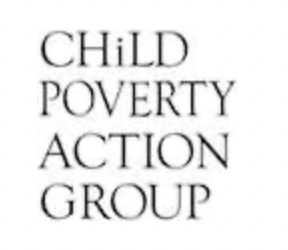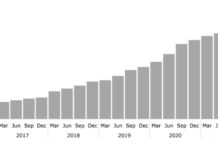- The Working for Families package is an important source of income for the support of children in low-income families, but its serious shortfalls need fixing.
Child Poverty Action Group (CPAG) says today’s Working for Families (WFF) increases are little more than an overdue inflation catch-up, and substantive improvements are needed to unlock all families from the constraints of poverty.
Food banks and charities throughout Aotearoa have been experiencing record high demand as parents, doing their best, struggle to ensure their children have adequate food and access to school supplies. CPAG welcomes the increases to core adult benefits but argues it is time to radically transform WFF to adequately protect the young in turbulent times.
The WFF Family Tax Credit increases today for the first time since 2018, in line with inflation up September 2021. There is an extra $5 per child per week over and above the inflation increase but this won’t address the large gaps in income for children. Nor does it cover the loss in spending power of the other major child-related tax credit, the In Work Tax Credit (IWTC).
In the meantime, the cost of living has risen sharply in the last 6 months undermining today’s increases.
The poorest children are still denied the IWTC of $72.50 per week (or $82 inflation-adjusted) when their parents are receiving a benefit, or part-benefit because they can work only part-time. “Let’s catch up to Australia where there is no such discrimination in their tax credits against the poorest children” says CPAG spokesperson Susan St John.
The Auckland City Missioner, Helen Robinson, said recently, reflecting on changes that would make a real difference to the families the Mission sees, “WFF is designed to limit assistance to the worst-off families and that lifting these worst-off up requires making the full package (ie the IWTC) available to all on benefits. It can be done simply and would recognise that parenting is work.”
“The Government can significantly reduce the burden of the deepest income poverty by first, ensuring the full Working for Families reaches the 150,000 children living in the severest income poverty who currently miss out. Secondly, annual indexing of all aspects of WFF to wages is essential, as is done for benefits for adults and NZ Superannuation ” says St John.
Some changes to WFF that come into force today will actually make life harder for low-income families who earn more than $42,700 because, as from today, the rate of abatement has increased to 27%”
A long-promised review of Working for Families has been very slow to take shape. CPAG says there is no need for more committees, more reports and more delays. “The delays have continued to hurt our children, they should not have to wait any longer.”
Child Poverty Action Group is calling on the Government to act urgently and
- 1. Make WFF child-centric by decoupling it from all paid work requirements. This entails extending the equivalent of the In-Work Tax Credit to all low-income children, whether their parents are on-benefit or not.
- 2. Index WFF payment rates to wages annually, and increase WFF thresholds from which WFF starts to reduce to restore the real value last set in 2018, and also index annually.
- 3. Decreasing the WFF abatement rate to lower the effective marginal tax rates on low income ‘working’ families and improve the returns from work.






It is a pity that this Labour/Green government seem to be doing squat for the most vulnerable in our community. It is especially galling given the (dare I say it) mandate they have after the magnitude of their electoral win. We certainly know that neither ACT or National under Luxton (after his ‘bottom feeders’ slip) are likely to do anything to alleviate the struggle, so this government’s minimisation of the issues and subsequent responses are disappointing.
To make matters worse, this government seems to be increasingly ‘out of touch’ with the needs of the most vulnerable. The measures taken to date merely apply band-aid to the ‘ruptured carotid’ and expect it will be okay. The solutions are, for the most part, politically difficult, which is why they are unlikely to occur – CGT, FTT, Death and Wealth Taxes. Increased short term borrowing might help, but the same group of hand-wringing right wingers that would bitch endlessly about this initiative are also likely to seek to block any new taxes.